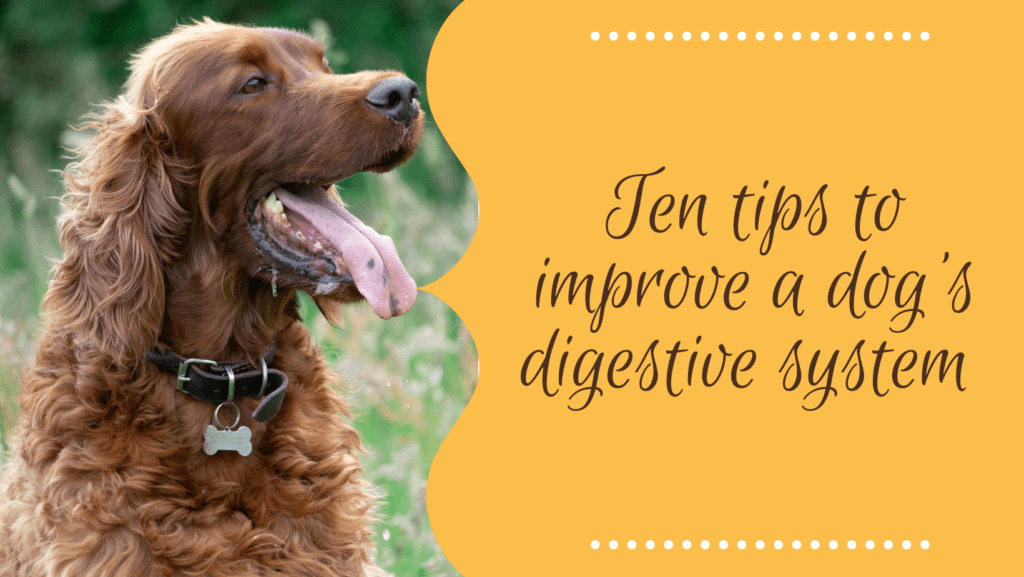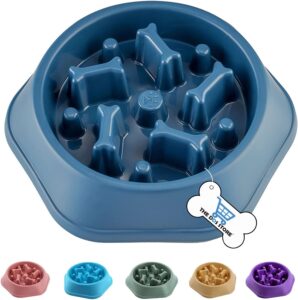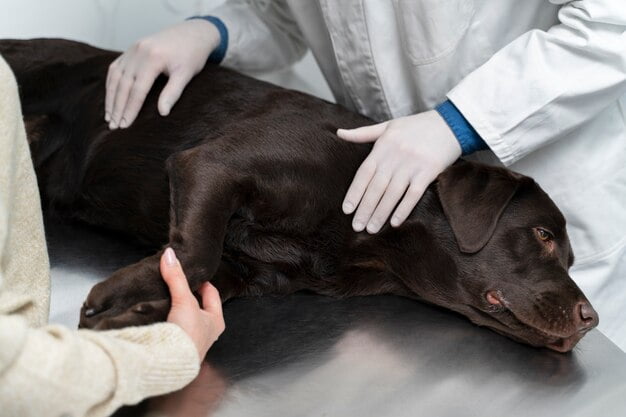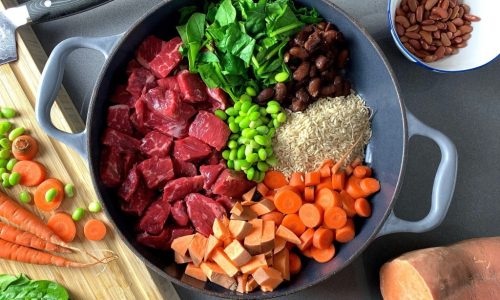Ten tips to improve a dog's digestive system

Introduction
In the realm of canine care, understanding and prioritizing your dog’s digestive system is paramount. This comprehensive guide will explore key strategies to nurture a resilient digestive system, promoting not just physical well-being but also a harmonious bond between you and your furry companion. From nutrition tips to exercise routines, embark on a journey to optimize your dog’s digestive health and enhance the quality of their life.
Ensuring your beloved furry friend’s digestive health is not just a responsibility; it’s an act of love. The health of their digestive system is fundamental to their overall well-being, impacting their mood, energy levels, and longevity. In this comprehensive guide, we will delve deeper into each of the ten practical tips to improve your dog’s digestive system, providing insights and actionable advice for a happier and healthier canine companion.
Table of Contents
1. Quality Nutrition:
At the core of digestive health lies your dog’s diet. Choosing premium, high-quality dog food with easily digestible ingredients sets the foundation for a resilient digestive system. Look for options that prioritize real meat, vegetables, and minimal artificial additives. This careful selection ensures your dog receives the essential nutrients without unnecessary fillers.
Opting for a balanced diet tailored to your dog’s needs contributes not only to digestive health but also to their overall vitality. A well-nourished body is better equipped to process food efficiently, supporting optimal digestion.
2. Establish a Regular Feeding Schedule:

Consistency is the key to a well-regulated digestive system. Establishing a routine feeding schedule creates a predictable environment for your dog’s stomach. This predictability aids in the efficient breakdown of food and nutrient absorption. Regular meals also contribute to maintaining a healthy weight, which is essential for overall well-being.
When planning a feeding schedule, consider your dog’s age, size, and activity level. Puppies, for instance, may require more frequent, smaller meals, while adult dogs may benefit from a consistent daily schedule.
3. Introduce Probiotics:
Probiotics, commonly associated with human digestive health, are equally beneficial for dogs. These friendly bacteria promote a balanced gut microbiome, aiding in digestion and absorption of nutrients. Consider incorporating probiotic supplements or selecting dog food that includes these beneficial microorganisms.
The introduction of probiotics becomes particularly important if your dog has experienced digestive issues in the past or has undergone antibiotic treatment, which can disrupt the natural balance of gut bacteria.
4. Ensure Ample Hydration:
Hydration plays a pivotal role in facilitating the intricate processes of digestion. Proper hydration ensures the smooth passage of food through the digestive tract and helps prevent issues like constipation. Always provide your dog with clean, fresh water to support optimal digestion.
Encourage water intake, especially during warmer weather or if your dog is particularly active. Dehydration can hinder digestion, so maintaining adequate fluid levels is a simple yet crucial aspect of digestive health.
5. Limit Table Scraps:
Refuse the allure of sharing culinary indulgences from your plate with your furry companion. While those pleading puppy eyes may be hard to resist, feeding your dog human food can disrupt their digestive system. Ingredients in human food may be challenging for dogs to process, potentially leading to gastrointestinal discomfort.
Stick to a nutritious, dog-friendly diet to ensure your dog receives the right balance of nutrients without introducing elements that could upset their stomach. This conscious decision contributes significantly to maintaining digestive harmony.
6. Use Slow-Feeding Bowls:

For dogs with a penchant for devouring their meals, slow-feeding bowls or puzzle feeders can be invaluable. These tools encourage a slower eating pace, preventing your dog from gulping down food, which can lead to indigestion or bloat, particularly in larger breeds.
Eating too quickly may result in excessive air intake, causing discomfort and increasing the risk of digestive issues. Slow-feeding bowls promote mindful consumption, allowing for better digestion.
7. Regular Exercise:

Physical activity isn’t just about maintaining a svelte physique; it plays a crucial role in digestive health. Regular exercise stimulates the digestive organs, promoting efficient food processing and nutrient absorption. It also helps manage your dog’s weight, reducing the risk of obesity-related digestive issues.
Incorporate a variety of physical activities into your dog’s routine, such as walks, playtime, and interactive games. Tailor the intensity and duration of exercise to your dog’s breed, age, and overall health to ensure a healthy balance.
8. Mindful Treats:
While treats are a delightful way to reward your furry friend, it’s essential to be mindful of their impact on digestive health. Opt for treats designed to support digestive health, with easily digestible ingredients. Consider treats with added benefits, such as those containing probiotics or digestive enzymes.
Be mindful of the quantity of treats given, as excessive treats can contribute to overindulgence and upset your dog’s stomach. Balancing treats with your dog’s overall diet ensures a harmonious approach to digestive wellness.
9. Regular Veterinary Check-ups:

Routine visits to the veterinarian are essential for monitoring your dog’s health, including their digestive system. Professional assessments can identify any early signs of digestive issues or other health concerns, allowing for timely intervention and preventive measures.
During veterinary check-ups, discuss your dog’s diet, any changes in behavior, and any concerns you may have about their digestive health. Regular monitoring ensures that potential issues are addressed promptly, contributing to long-term digestive well-being.
10. Integrate Fiber-Rich Foods:

Fiber is a nutritional superhero when it comes to digestion. Incorporate fiber-rich foods into your dog’s diet to promote bowel regularity, aid in the prevention of constipation, and contribute to overall digestive wellness. Vegetables such as pumpkin, sweet potatoes, and green beans are excellent natural sources of fiber.
Consider specialized dog food formulas that include added fiber for a convenient way to boost your dog’s fiber intake. However, always introduce dietary changes gradually to allow your dog’s digestive system to adapt.
Conclusion:
In conclusion, your proactive efforts to enhance your dog’s digestive health contribute significantly to their quality of life. By implementing these ten practical tips, you’re not just ensuring proper digestion; you’re nurturing a foundation for a vibrant and joyful existence for your furry family member.
Keep in mind that every dog is unique, so monitor their responses to dietary changes, and consult your veterinarian if you have specific concerns. With a little care and attention, you can actively participate in your dog’s digestive bliss, fostering a bond built on well-being and companionship.
You’re taking your dog on a journey to digestive harmony by emphasising quality nutrition, creating a regular feeding schedule, adding probiotics, making sure they drink enough water, avoiding table scraps, using slow-feeding bowls, exercising frequently, considering treats, planning frequent veterinary checkups, and introducing fiber-rich foods.







Pingback: Unleashing the Potential: A Deep Dive into the World of Raw Dog Food -